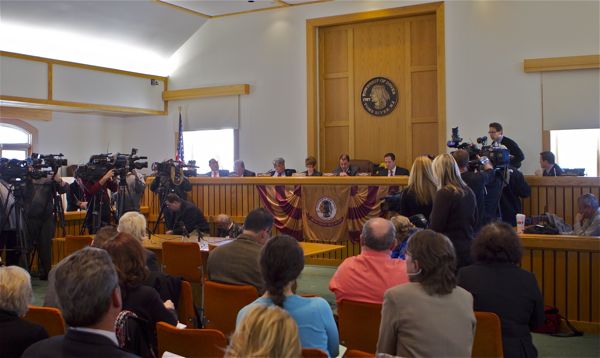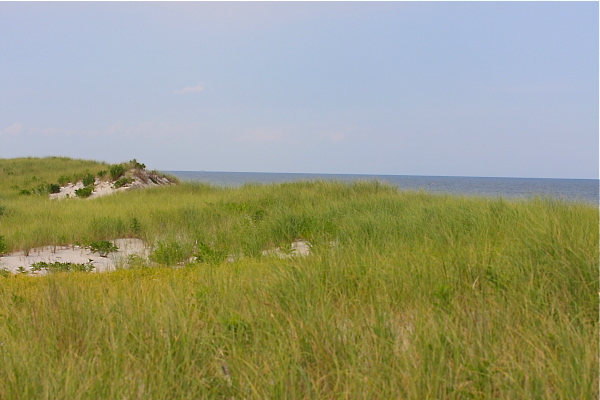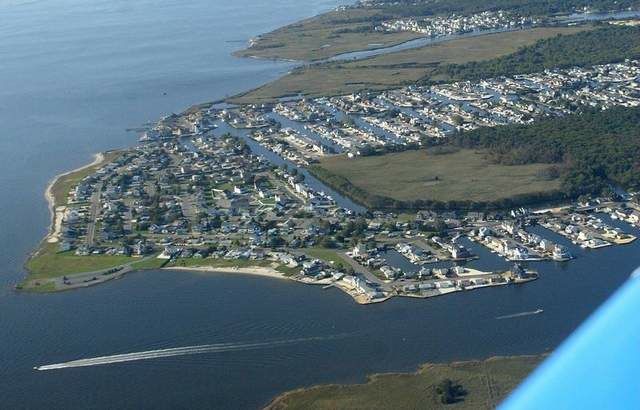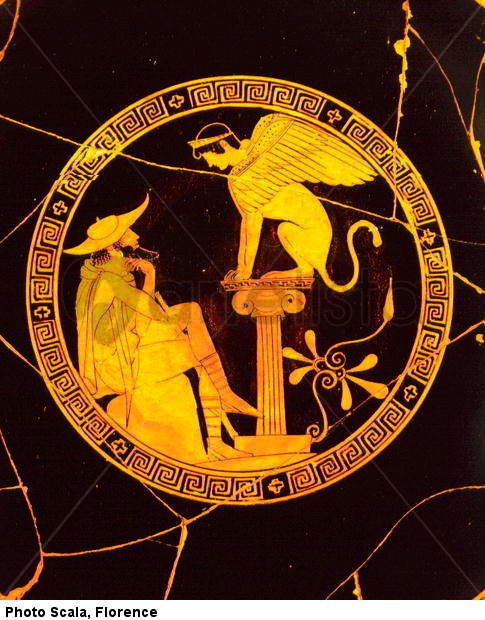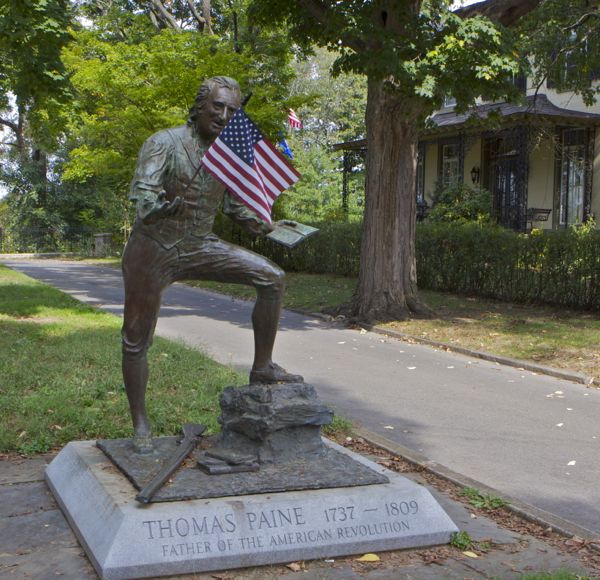
Thomas Paine - Bordentown, NJ
Could Paine’s Work Have Survived a Wikileaks Like Attack?
I now live in Bordentown – home of Thomas Paine: writer, activist, pamphleteer, and “Father of the American Revolution” – and regularly visit his statue (see above).
I was just thinking of Paine as I read a column on Wikileaks by Glenn Greenwald of The Guardian:
Prosecution of Anonymous activists highlights war for Internet control – The US and allied governments exploit both law and cyber-attacks as a weapon to punish groups that challenge it
Greenwald is rightfully disturbed by what he characterizes as a “staggering array of extrajudicial punishments” imposed by governments and their allies to retaliate against, destroy, and prevent further leaks and publications by Wikileaks.
Before I excerpt Greenwald’s description of this “staggering array”, I thought I’d pose questions for any historians out there.
I am no historian and willingly confess my ignorance of Paine’s experiences. (In fact, I’m doing the Google right now, and researching this issue as I write this post and finding some fascinating stuff!)
I’ve read his books and vaguely know of Thomas Paine as a radical, a writer, activist pamphleteer, and editor of the Pennsylvania Magazine in Philadelphia. He was an active supporter of the move towards independence who aggressively used media as a weapon against imperial British rule.
The similarities between 18th century activists using pamphlets and today’s internet seem obvious, as do the imperial parallels between Britain and the US.
So I ask: How did the British and Loyalists respond to Paine in America? Did they deploy a bag of dirty tricks?
Like all forms of reactionary power, I imagine that the British took steps to suppress or block the publication and distribution of Paine’s pamphlets. But what if anything specifically did they do? What was the reaction and response to Paine?
Did they spy on him and infiltrate his circle of comrades? Pay Loyalist informers and agents provocateurs? Sponsor black propaganda?
We are aware that:
Thomas Paine’s Common Sense was like a lightning bolt in the colonies. Its message was simple: Britain had no right to govern America, the Monarchy system itself was basically corrupt, and Americans would be much better off on their own. His arguments certainly struck a chord. The French and Indian War of the 1750s had shown the colonists just how far they had drifted from their English counterparts in nearly every aspect of politics and culture. England saw colonists as crude and uneducated, while the English were seen as drunk with power and subservient to a monarchy that had no meaning to the average colonist, who pretty much lived by his own rules.
Not everyone, though, read Paine’s work and nodded with approval. Hard-core loyalists were realizing that they had been blindsided by a powerful piece of propaganda. Anxious to put out the fires that Common Sense was igniting, they attempted to strike back. One of the very first to do so was a gentleman of means from the colony of Maryland — a planter named James Chalmers. […]
Nestled in a building on south Third Street beside Saint Paul’s Episcopal Church was Philadelphia’s most popular bookstore. Robert Bell’s shop carried books on the arts, sciences, languages, history, biography, divinity, law, voyages, travels, poetry, plays, novels and virtually anything else the well-read eighteenth-century gentleman might care to read. Bell also published pamphlets, and Chalmers was only too anxious to see his thoughts appear in the best bookshop in town. Chalmers must have enjoyed the ironic fact that it was Robert Bell who had published the first edition of Common Sense.
On Saturday, March 16, an advertisement first appeared in The Pennsylvania Ledger, a local newspaper which favored loyalist views. For three shillings, interested citizens could purchase Plain Truth; addressed to the Inhabitants of America. Written under the name “Candidus,” James Chalmers launched an all-out assault on Paine’s work. In the space of seventy pages, he resorted to everything he could think of to tear down Common Sense. For those who just couldn’t get enough of the Maryland loyalist’s writings, Additions to Plain Truth appeared on April 10 for only one shilling.
Unfortunately for Chalmers, he had done precisely the wrong thing.
While Paine had written in the plainest language possible in order to reach the common man with his argument, Chalmers took the high road with a strong emphasis on literary references and history through the ages. A semiliterate blacksmith who could muddle his way through Common Sense must have looked at Plain Truth and shrugged his shoulders. Many educated and learned men were already loyalists. It was the “great unwashed” who needed convincing that England was still their sovereign.
Chalmers, by his admission, chose to write Plain Truth after waiting week upon week for someone to respond with anger to Common Sense. None did. New York’s Constitutional Gazette called Paine’s work “a wonderful production,” while others were equally complimentary. Sensing great opposition, the Kent County planter boldly took the initiative. […]
Plain Truth would prove a failed document, doomed from the very start. Its first appearance on Robert Bell’s bookshelf occurred within days of one of the rebels’ greatest accomplishments. In Boston, the British had pulled out their occupying forces when they woke up one morning to find a battery of rebel artillery, “borrowed” from Fort Ticonderoga, bearing down on them. Winning a war against the redcoats suddenly seemed possible. Chalmers’ pleas for making peace with England couldn’t have been more ill-timed.
He may not have turned the tide, but Plain Truth was widely read. Just a few weeks after its appearance, a writer calling himself “Cato” spoke favorably of Chalmers in a letter to the people of Pennsylvania published in the Pennsylvania Ledger. Mentioning the recent pamphlet, the writer recommended it “as containing many judicious remarks upon the mischievous tenets and palpable absurdities held forth in the pamphlet so falsely called Common Sense.”
Did the British harass, intimidate, or shut down Paine’s financiers and publishers? Freeze his assets? Seize his bank accounts? Burn his pamphlets? Smash the printing presses? Close the bookstores?
Did they take steps to harass, intimidate, discredit, silence or jail him? Trump up charges and prosecute him? Seek to extradite him from foreign lands? Intimidate and jail his sources?
Did they do a “staggering array” of stuff like this we now see occurring? Greenwald writes:
In December 2010, after WikiLeaks began publishing US diplomatic cables, it was hit with cyber-attacks so massive that the group was “forced to change its web address after the company providing its domain name cut off service”. After public demands and private pressure from US Senate Homeland Security Chairman Joe Lieberman, Amazon then cut off all hosting services to WikiLeaks. Sophisticated cyber-attacks shortly thereafter forced the group entirely off all US website services when its California-based internet hosting provider, Everydns, terminated service, “saying it did so to prevent its other 500,000 customers of being affected by the intense cyber-attacks targeted at WikiLeaks”.
Meanwhile, Chairman Lieberman’s public pressure, by design, also led to the destruction of WikiLeaks’ ability to collect funds from supporters. Master Card and Visa both announced they would refuse to process payments to the group, as did America’s largest financial institution, Bank of America. Paypal not only did the same but froze all funds already in WikiLeaks’ accounts (almost two years later, a court in Iceland ruled that a Visa payment processor violated contract law by cutting of those services). On several occasions in both 2011 and 2012, WikiLeaks wasprevented from remaining online by cyber-attacks.
Over the past two years, then, this group – convicted of no crime but engaged in pathbreaking journalism that produced more scoops than all other media outlets combined and received numerous journalism awards – has been effectively prevented from functioning, receiving funds, or even maintaining a presence on US internet servers. While it’s unproven what direct role the US government played in these actions, it is unquestionably clear that a top US Senator successfully pressured private corporations to cut off its finances, and more important, neither the US nor its allies have taken any steps to discover and apprehend the perpetrators of the cyber-attacks that repeatedly targeted WikiLeaks, nor did it even investigate those attacks.
The ominous implications of all this have never been fully appreciated. Recall that all the way back in 2008, the Pentagon prepared a secret report (ultimately leaked to WikiLeaks) that decreed WikiLeaks to be a “threat to the US Army” and an enemy of the US. That report plotted tactics that “would damage and potentially destroy” its ability to function. That is exactly what came to pass.
So this was a case where the US government – through affirmative steps and/or approving acquiescence to criminal, sophisticated cyber-attacks – all but destroyed the ability of an adversarial group, convicted of no crime, to function on the internet. Who would possibly consider that power anything other than extremely disturbing? What possible political value can the internet serve, or journalism generally, if the US government, outside the confines of law, is empowered – as it did here – to cripple the operating abilities of any group which meaningfully challenges its policies and exposes its wrongdoing?
I agree with Greenwald that there are “ominous implications” from these attacks on Wikileaks.
Can anyone recommend a book on this topic?

Fall shot (11/24/12)
